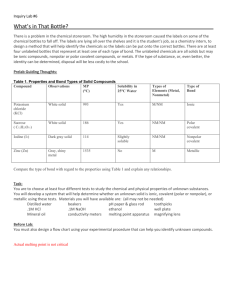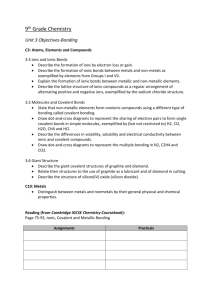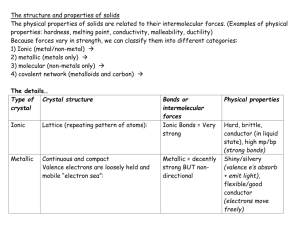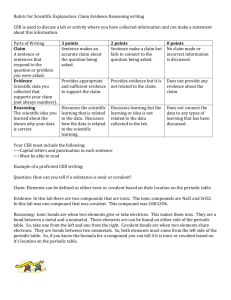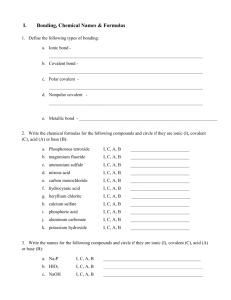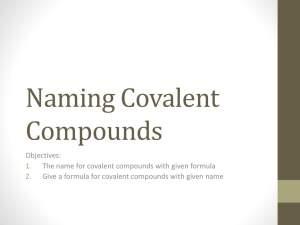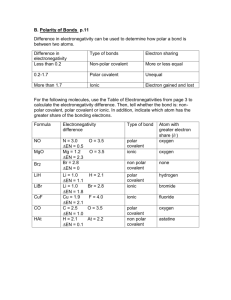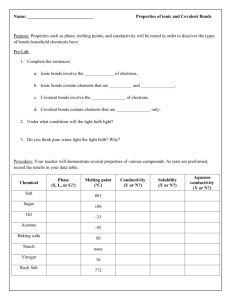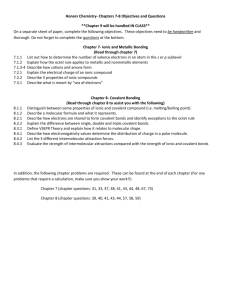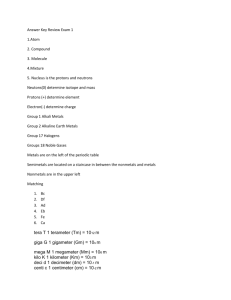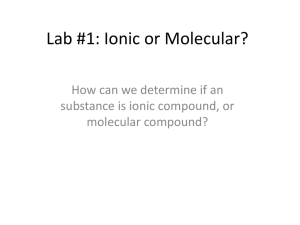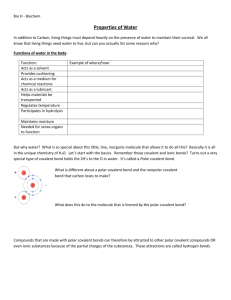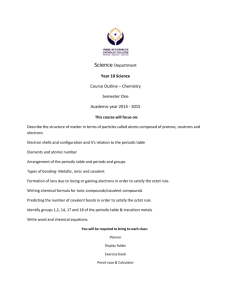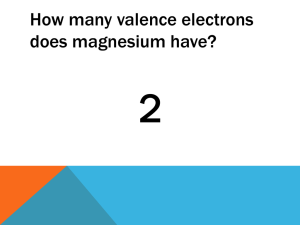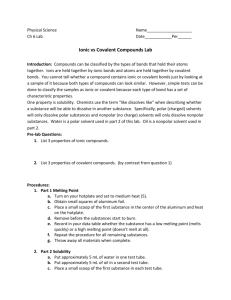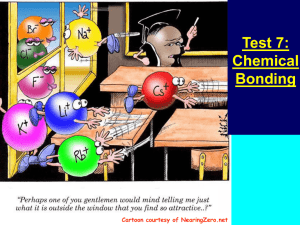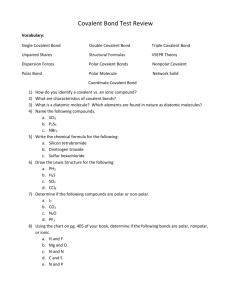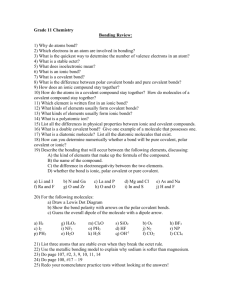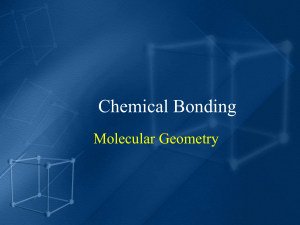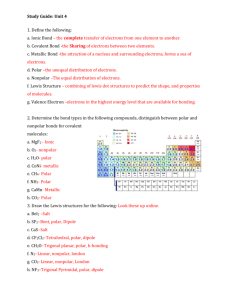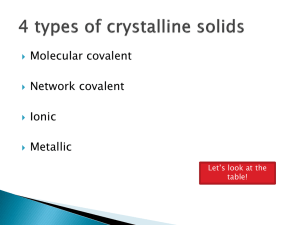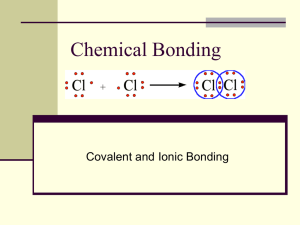Chemistry ch 5
advertisement
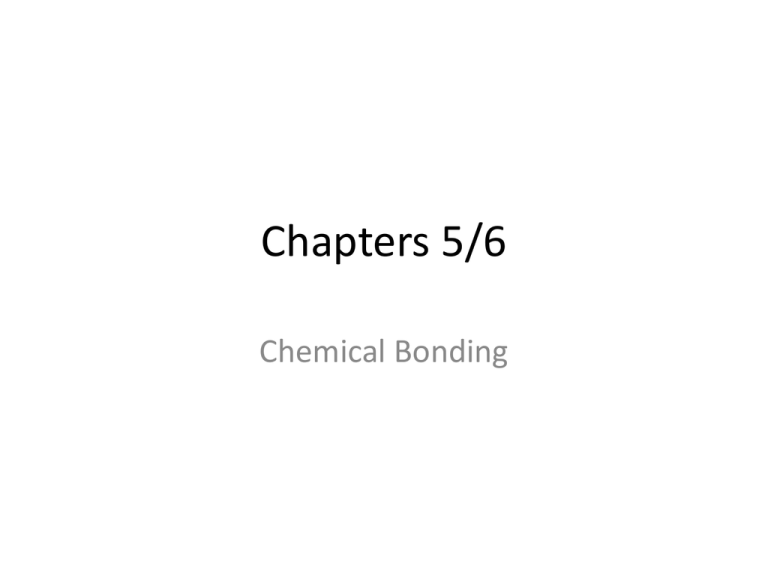
Chapters 5/6 Chemical Bonding 2 Types of bonds . . A +B A:B + A :B Shared Pair Covalent Ionic Bonding Types Percent Ionic 100% 50% 5% 0% 0.5 0.0 Difference in Electronegativity 3.3 2.1 Ionic Polar Covalent Nonpolar Covalent Types of Bonds Cs - F 4.0 – 0.7 = 3.3 H - Cl 3.0 – 2.1 = 0.9 H-H 2.1 – 2.1 = 0.0 Nonpolar Covalent Ionic Bond Polar Covalent Polar Covalent Shared electron cloud H Cl d+ d- (Slightly positive) (Slightly negative) Polar Covalent – unequal sharing Nonpolar Covalent H H Nonpolar Covalent – equal sharing Properties of ionic compounds Composed of positive and negative ions Ionic compounds form crystals Ionic vs. Covalent compounds Ionic • Harder • Higher melting point • Higher boiling point • Form crystals • Form electrolytes • Salt Covalent • Lower melting point • Lower boiling point • Doesn’t form electrolytes • Sugar Metallic bonds Sheet of positive ions surrounded by mobile electrons Metallic bonding • Electrons are randomly spaced – Free to move around – Good conductors of heat and electricity – Called “electron sea” • Properties of metals – Malleable – able to be bent or shaped – Ductile – able to be drawn into a wire VSEPR • Valence shell electron pair repulsion theory – Electrons want to be as far apart as possible – “molecular geometry” • • • • Linear – AB2 Bent – AB2e2 Triangular Planar – AB3 Tetrahedral – AB4
